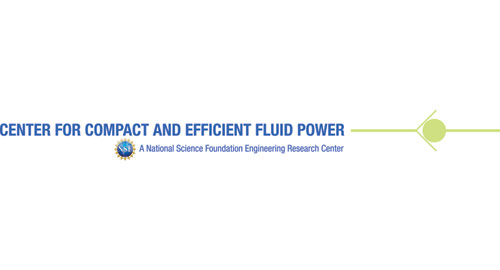 The CCEFP recently announced that the National Science Foundation (NSF) Emerging Frontiers in Research & Innovation (EFRI) program will fund $30,000,000 in soft robotics. The topic area of Continuum, Compliant, and Configurable Soft Robotics (C3 SoRo) will award 15 proposals of approximately $2,000,000 each over four years. The NSF EFRI program seeks proposals with transformative ideas that represent an opportunity for a significant shift in fundamental engineering knowledge with a strong potential for long term impact on national needs or a grand challenge.
The CCEFP recently announced that the National Science Foundation (NSF) Emerging Frontiers in Research & Innovation (EFRI) program will fund $30,000,000 in soft robotics. The topic area of Continuum, Compliant, and Configurable Soft Robotics (C3 SoRo) will award 15 proposals of approximately $2,000,000 each over four years. The NSF EFRI program seeks proposals with transformative ideas that represent an opportunity for a significant shift in fundamental engineering knowledge with a strong potential for long term impact on national needs or a grand challenge.
Soft robotics has been identified as a high growth emerging market for fluid power in the CCEFP Research Strategy. CCEFP organized an extensive letter writing campaign in response to an NSF EFRI Request for Information (RFI) last fall, to identify two topic areas for funding. According to Kim Stelson, Director, Center for Compact and Efficient Fluid Power, academics from the CCEFP research network responded forcibly. Subsequently, soft robotics was short-listed for consideration and Eric Barth, CCEFP Deputy Director for Human-Scale Fluid Power, was invited to give a webcast presentation. Without CCEFP’s effort, the topic of soft robotics would not have been chosen.
Other recent NSF EFRI topics are completely outside of fluid power research, including: Chromatin and Epigenetic Engineering, Non-Reciprocal Magneto-Acoustic Waves in Chiral Magnetic Systems, and Dynamic Elastic Media: Passive and Active Non-Reciprocal Theory, Experiment and Design.
“This success for soft robotics demonstrates that our research strategy is effective. Using CCEFP resources to identify, cultivate, and convince government agencies to fund fluid power research works,” Stelson said.
Stelson pointed to another CCEFP success in the Department of Energy (DOE) Mobile Fluid Power Program ($5,000,000 per year, potentially growing to $10,000,000 per year). Due to CCEFP efforts, fluid power actuation is included in the $250,000,000 Advanced Robotics for Manufacturing (ARM) Institute at Carnegie Mellon University, and six CCEFP companies have joined.
“This level of government support for fluid power research is long overdue and critical to the ongoing health of the fluid power industry,” Stelson concluded. “These successes would not have been possible without concerted effort by the CCEFP and your continued support.”
Center for Compact and Efficient Fluid Power
www.ccefp.org
Filed Under: Pneumatic Tips
